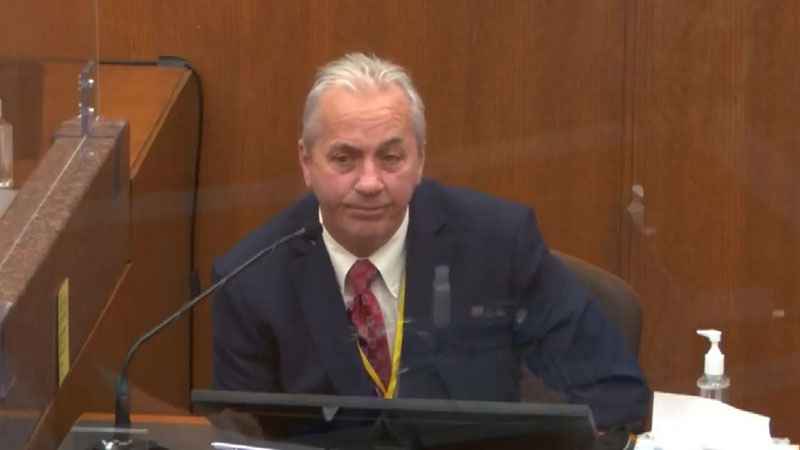MPD lieutenant testifies in Derek Chauvin trial, says kneeling on Floyd’s neck was ‘totally unnecessary’
[anvplayer video=”5018650″ station=”998122″]
Friday’s court session for the Derek Chauvin trial included testimony from two employees with the Minneapolis Police Department.
Kneeling on George Floyd’s neck while he was handcuffed and in the prone position was "top-tier, deadly force" and "totally unnecessary," the head of the Minneapolis Police Department’s homicide division testified.
"If your knee is on a person’s neck, that can kill him," said Lt. Richard Zimmerman, who added that when a person is handcuffed in the prone position, "your muscles are pulling back … and if you’re laying on your chest, that’s constricting your breathing even more."
Zimmerman also testified at Chauvin’s murder trial that once Floyd was handcuffed, he saw "no reason for why the officers felt they were in danger, if that’s what they felt, and that’s what they would have to feel to be able to use that kind of force."

Minneapolis Police Department Lt. Richard Zimmerman.[Courtroom Video]
"So in your opinion, should that restraint have stopped once he was handcuffed and thrown on the ground?" Prosecutor Matthew Frank asked.
"Absolutely," Zimmerman replied.
Zimmerman also testified that officers have a duty to provide care for a person in distress, even if an ambulance has already been called.
Friday’s testimony concludes in State vs. Chauvin trial
Under cross-examination, Chauvin’s attorney Eric Nelson peppered Zimmerman with questions about use of force, pointing out that officers must consider the entire situation when deciding about whether to use force — including what is happening with a suspect, whether the suspect is under the influence, and other surrounding hazards, such as a crowd.
Zimmerman agreed with Nelson that a person who is handcuffed can still pose a threat and can continue to thrash around.
[anvplayer video=”5018661″ station=”998122″]
The lieutenant was one of 14 department employees to condemn Chauvin’s actions in a letter sent out last June. Zimmerman testified that every officer, even high-ranking officers like himself, has to complete use of force training once a year. He also explained the use of force continuum in the department’s policy. He stated the levels as "presence, verbal skills, soft technique — escort by arm, hard technique — mace, handcuffs, and deadly force."
The lieutenant stated that there was no threat at the scene in regards to bystanders.
"Unless there a crowd is attacking you, it shouldn’t really have an effect on your actions," he said.
His testimony came a day after a Minneapolis police supervisory sergeant who was on duty the night Floyd died testified that he believes the officers restrained him for too long.
David Pleoger testified Thursday that officers are trained to roll people on their side to help with their breathing after they have been restrained in the prone position. He said the officers could have ended their restraint of Floyd after he stopped resisting.
More Derek Chauvin trial coverage from KSTP
Additionally, Minneapolis Police Sgt. Jon Edwards, the overnight supervisor the night Floyd died, said he secured the scene at the request of Pleoger, who was still at the hospital with Floyd. Edwards said Pleoger told him the encounter had the potential to become a "critical incident," which could mean someone died or was seriously injured.
Hennepin County Judge Peter Cahill ended the session at around 11:40 a.m. He mentioned earlier this week it was expected, as witness testimonies have gone quicker than anticipated. Chauvin’s trial will resume on Monday at 9:30 a.m.
The Associated Press contributed to this story.